
Overview
The public administration industry encompasses governmental bodies responsible for policy-making, regulation, and public service provision. This sector includes government agencies at the local, state, and federal levels, as well as non-profit organizations and international bodies involved in public affairs and governance. Public administration involves a wide range of activities, including budgeting, planning, public policy development, regulatory enforcement, and service delivery across various sectors such as healthcare, education, transportation, and social welfare. It plays a crucial role in shaping and implementing policies and programs that impact society’s well-being and the functioning of public institutions.
Depending on specific features and functions, GAO Tek’s Hydrogen chloride gas detectors are sometimes referred to as chlorohydric acid sensors, hydrochloric acid monitors, chlorine hydride detectors, acid vapor detectors, chloride gas analyzers, hydrogen chloride monitors, chlorine gas detectors, corrosive gas sensors and acidic fume detectors.
Furthermore, GAO Tek’s hydrogen chloride gas detectors are further grouped into:
Alarm-enabled, Handheld, High precision, Data logging, Outdoor, Rugged and Wireless.
GAO Tek’s Hydrogen chloride gas detectors have the following applications in the public administration industry:
- Public Buildings Safety Assurance: GAO Tek’s hydrogen chloride gas detectors are installed in public buildings to continuously monitor air quality, ensuring the safety of occupants and facilitating prompt evacuation in case of gas leaks.
- Environmental Compliance Monitoring: Public administration agencies employ GAO’s hydrogen chloride gas detectors to comply with stringent environmental regulations set by authorities such as the Environmental Protection Agency (EPA). These detectors help in monitoring emissions and ensuring adherence to air quality standards.
- Transportation Infrastructure Safety: GAO Tek’s hydrogen chloride gas detectors are integrated into transportation systems and infrastructure to detect any leaks or emissions of hydrogen chloride, enhancing safety for commuters and workers.
- Emergency Response Readiness: Public administration entities use GAO’s hydrogen chloride gas detectors as part of their emergency preparedness plans. These detectors enable rapid detection of gas leaks or environmental hazards, allowing for timely response and mitigation measures.
- Public Health Protection: GAO Tek’s hydrogen chloride gas detectors play a crucial role in monitoring hydrogen chloride levels in public areas, parks, and recreational spaces. By ensuring the air quality meets safety standards, these detectors contribute to safeguarding public health and well-being.
- Regulatory Compliance and Reporting: Public administration agencies use GAO’s hydrogen chloride gas detectors to comply with regulatory requirements and reporting standards. These detectors provide accurate data on gas levels, facilitating regulatory compliance and documentation.
- Risk Management and Mitigation: GAO Tek’s hydrogen chloride gas detectors help public administration entities identify potential risks associated with hydrogen chloride exposure. By monitoring gas levels in various settings, they enable proactive risk management and the implementation of mitigation measures to protect public safety.
More information on hydrogen chloride gas detectors and their applications in other industries can be found on
Hydrogen chloride gas detectors
This category page lists related products
Systems in the Public Administration Industry Utilizing Hydrogen Chloride Gas Detectors
Here are some popular systems in the public administration industry using hydrogen chloride gas detectors:
Public Building Ventilation Systems:
- Monitoring Software: Software systems continuously analyze gas levels detected by hydrogen chloride gas detectors, providing real-time alerts and data visualization.
- Data Management Software: Platforms manage and store historical gas concentration data collected by detectors, facilitating trend analysis and regulatory reporting.
- Integration Software: Software integrates gas detector systems with building management systems, enabling automated responses to gas alerts, such as adjusting ventilation rates.
Emergency Response Vehicles:
- Mobile Monitoring Software: Software applications installed on emergency response vehicles receive data from onboard hydrogen chloride gas detectors, enabling mobile monitoring and rapid response in case of gas leaks.
- Mapping and Navigation Software: Integrated mapping and navigation software help emergency responders locate and navigate to areas with detected gas leaks, optimizing response times and resource allocation.
- Communication Software: Software platforms facilitate real-time communication between emergency response teams and central command, ensuring coordinated and efficient response to gas-related incidents.
Public Transportation Facilities:
- Fleet Management Software: Software systems manage fleets of public transportation vehicles equipped with hydrogen chloride gas detectors, providing centralized monitoring and maintenance scheduling.
- Predictive Maintenance Software: Utilizing data collected by gas detectors, predictive maintenance software predicts potential equipment failures or gas leaks, enabling proactive maintenance and minimizing downtime.
- Route Optimization Software: Software optimizes public transportation routes based on real-time gas concentration data, ensuring passenger safety and minimizing exposure to hazardous conditions.
Water Treatment Facilities:
- SCADA Systems: Supervisory Control and Data Acquisition (SCADA) systems monitor and control water treatment processes, integrating data from hydrogen chloride gas detectors to ensure water quality and worker safety.
- Alarm Management Software: Alarm management software processes alerts generated by gas detectors, prioritizing and escalating alarms based on severity levels to prompt timely responses.
- Historian Software: Historian software archives gas concentration data over time, enabling water treatment facilities to analyze trends, identify potential issues, and optimize operational efficiency.
Government Office Buildings:
- Access Control Systems: Integrated with hydrogen chloride gas detectors, access control systems restrict access to sensitive areas in government office buildings during gas-related incidents, enhancing security and safety.
- Building Automation Software: Building automation software coordinates the operation of various systems, including gas detectors, HVAC, and lighting, based on detected gas levels and occupancy to optimize energy efficiency and occupant comfort.
- Incident Management Software: Incident management software centralizes the response to gas-related incidents in government office buildings, facilitating communication, resource allocation, and documentation for effective resolution.
GAO Tek’s targeted markets are North America, particularly the U.S. and Canada.
Complying with Government Regulations
GAO Tek’s hydrogen chloride gas detectors comply or help our customers comply with the U.S. government regulations such as:
- Clean Air Act (CAA)
- Occupational Safety and Health Administration (OSHA) Standards
- Environmental Protection Agency (EPA) Regulations
- National Institute for Occupational Safety and Health (NIOSH) Regulations
- National Fire Protection Association (NFPA) Standards
- Department of Transportation (DOT) Regulations
- Federal Emergency Management Agency (FEMA) Guidelines
GAO Tek’s hydrogen chloride gas detectors comply or help our clients comply with the Canadian regulations such as:
- Canadian Environmental Protection Act (CEPA)
- Canadian Centre for Occupational Health and Safety (CCOHS) Regulations
- Canadian Standards Association (CSA) Standards
- Transportation of Dangerous Goods Regulations (TDG Regulations)
- Ontario Ministry of Labour Regulations: Occupational Health and Safety Act (OHSA)
- Alberta Occupational Health and Safety (OHS) Code Regulations
- Environmental Protection and Enhancement Act (EPEA)
Case Studies of Hydrogen Chloride Gas Detectors in the Public Administration Industry
Hydrogen chloride gas detectors are sometimes called as chlorohydric acid sensors, hydrochloric acid monitors, chlorine hydride detectors, acid vapor detectors, chloride gas analyzers, hydrogen chloride monitors, chlorine gas detectors, corrosive gas sensors and acidic fume detectors.
Here are some practical examples of using hydrogen chloride gas detectors in the public administration industry:
Deployed advanced hydrogen chloride gas detectors to continuously monitor air quality parameters such as humidity, temperature, and gas concentrations, ensuring a safe and healthy environment for government officials, employees, and visitors. By promptly detecting any deviations from safety thresholds, these detectors enable proactive measures to mitigate potential risks and maintain regulatory compliance.
Implemented state-of-the-art hydrogen chloride gas detectors equipped with real-time monitoring capabilities to assess indoor air quality levels within government facilities. These detectors utilize cutting-edge sensor technology to detect and analyze hydrogen chloride concentrations, enabling swift responses to any detected anomalies and ensuring optimal safety standards for occupants.
Utilized advanced hydrogen chloride gas detectors integrated with intelligent software algorithms to continuously monitor HVAC systems and indoor air quality parameters. These detectors employ sophisticated data analytics to detect and analyze hydrogen chloride levels, enabling proactive maintenance and ensuring optimal air quality standards for government employees and visitors.
Implemented robust hydrogen chloride gas detection systems equipped with wireless connectivity and remote monitoring capabilities. These systems provide real-time alerts and notifications to facility managers in the event of any abnormal gas concentrations, enabling swift response actions to safeguard the health and well-being of occupants.
Deployed cutting-edge hydrogen chloride gas detectors featuring advanced sensor technology and cloud-based monitoring platforms. These detectors continuously monitor indoor air quality parameters and provide comprehensive data insights to government officials, enabling proactive decision-making and ensuring adherence to stringent safety regulations.
Integrated state-of-the-art hydrogen chloride gas detectors with advanced alarm systems and notification features. These detectors employ high-sensitivity sensors to detect even trace amounts of hydrogen chloride gas, enabling rapid response measures to prevent potential health hazards and maintain a safe working environment for government personnel.
Utilized sophisticated hydrogen chloride gas detection solutions equipped with intelligent analytics and predictive maintenance capabilities. These solutions enable continuous monitoring of indoor air quality parameters, empowering facility managers to proactively address any deviations and uphold the highest standards of safety and compliance.
Implemented comprehensive hydrogen chloride gas detection systems integrated with advanced data visualization tools. These systems provide government stakeholders with actionable insights into indoor air quality trends and patterns, facilitating informed decision-making and ensuring regulatory compliance across government facilities.
Deployed state-of-the-art hydrogen chloride gas detectors equipped with multi-sensor arrays and real-time data processing capabilities. These detectors offer precise monitoring of indoor air quality metrics and enable prompt response actions in the event of any gas concentration anomalies, ensuring the safety and well-being of government officials and staff.
Integrated advanced hydrogen chloride gas detection solutions featuring user-friendly interfaces and customizable alerting mechanisms. These solutions provide facility managers with detailed insights into air quality parameters and empower them to implement targeted interventions to maintain a healthy and secure workplace environment for government employees.
GAO RFID Inc. RFID Hardware, a sister company of GAO Tek Inc., is ranked as a top 10 RFID suppliers in the world. Its RFID, BLE, and IoT products have also been widely used in the public administration industry. Articles about related industries are given below:
Use of Hydrogen Chloride Gas Detectors with Leading Software and Cloud Services in the Public Administration Industry
GAO Tek has used or has facilitated its customers to use GAO’s hydrogen chloride gas detectors with some of the leading software and cloud services in their applications. Examples of such leading software and cloud services include:
- Air Quality Monitoring Software
- Environmental Compliance Management Software
- Hazardous Gas Detection System Software
- Real-time Alerting and Notification Software
- Data Analytics and Reporting Tools
- Remote Monitoring and Control Platforms
- Facility Management Software
- Incident Response and Emergency Management Software
- Regulatory Compliance Tracking Systems
- Sensor Data Integration Platforms
- GIS Mapping and Spatial Analysis Software
- Cloud-based Data Storage and Backup Services
- Mobile Applications for Field Monitoring
- Predictive Maintenance Software
- Emission Inventory Management Systems
GAO Tek’s vibration meters and their applications in other industries are listed on
Hydrogen chloride gas detectors
Other related products can be found on
Meeting Customer’s Demands
Large Choice of Products
In order to satisfy the diversified needs of their corporate customers, GAO Tek Inc. and its sister company GAO RFID Inc. together offer a wide choice of testing and measurement devices, network products, RFID, BLE, IoT, and drones.
Fast Delivery
To shorten the delivery to our customers, GAO has maintained a large stock of its products and is able to ship overnight within the continental U.S. and Canada from the nearest warehouse.
Local to Our Customers
We are located in both the U.S. and Canada. We travel to customers’ premises if necessary. Hence, we provide a very strong local support to our customers in North America, particularly the U.S and Canada.
Furthermore, we have built partnerships with some integrators, consulting firms and other service providers in different cities to further strengthen our services. Here are some of the service providers in the public administration industry we have worked with to serve our joint customers:
- Booz Allen Hamilton
- DXC Technology
- Leidos
- Northrop Grumman
- CGI Group
- KPMG LLP
- PricewaterhouseCoopers (PwC)
- Ernst & Young LLP
- Accenture Federal Services
- Deloitte Consulting LLP
- McKinsey & Company
- Boston Consulting Group (BCG)
- Grant Thornton LLP
- Kearney
- Alvarez & Marsal
- Deloitte Canada
- IBM Canada
- Accenture Canada
- PricewaterhouseCoopers (PwC) Canada
- Ernst & Young Canada
GAO has Many Customers in the Public Administration Industry
The products from both GAO Tek Inc. and GAO RFID Inc. have been widely used in the public administration industry by many customers, including some leading companies. Here is more information on applications of GAO RFID Inc.’s products in the public administration industry. Articles about related industries are given below:
Here are some of GAO’s customers in the public administration industry:
- Accenture
- Deloitte
- IBM Global Services
- Booz Allen Hamilton
- CGI Group
- Cognizant
- DXC Technology
- Northrop Grumman
- Leidos
- Capgemini
- Oracle
- Salesforce
- Shopify
- Telus
- BlackBerry
- OpenText
- Rogers Communications
- SAP Canada


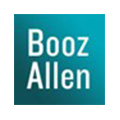

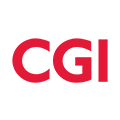




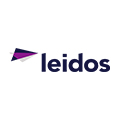




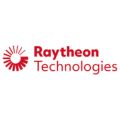

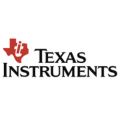

Contact Us
Here are GAO Tek’s Hydrogen chloride gas detectors and they are further organized by feature:
Alarm-enabled, Handheld, High precision, Data logging, Outdoor, Rugged and Wireless.
If you have any questions about our products or want to place an order, our technical experts can help you.
Please fill out this form or email us.
